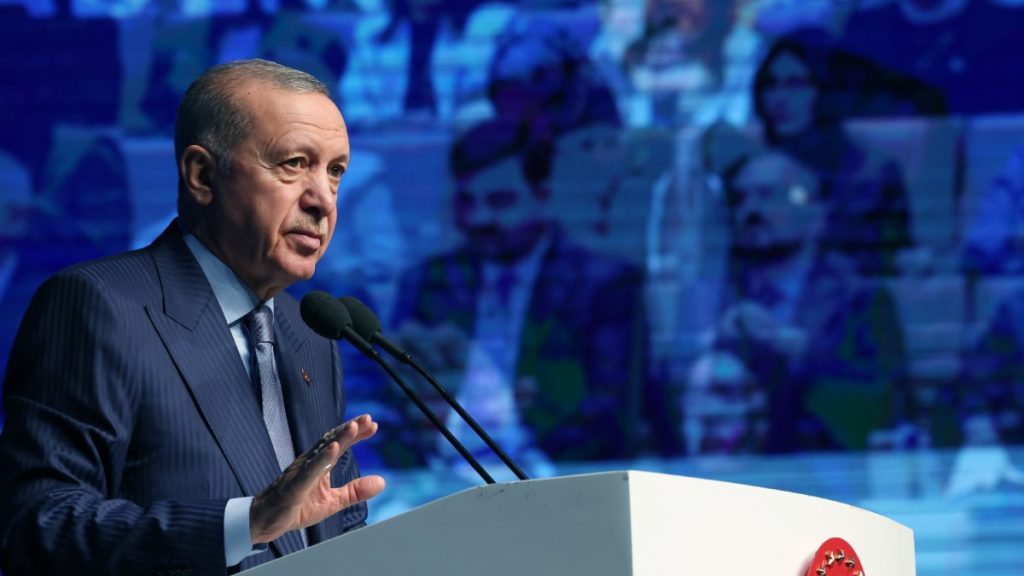In a speech at KADEM, President Recep Tayyip Erdoğan once again drew attention to the decline in Türkiye’s population growth rate, describing the situation as “a threat far more serious than war for our country.”
Türkiye’s total population is 85,664,944. This figure may appear insignificant for the time being, however, the fertility rate has fallen below the replacement level of 2.1 and dropped as low as 1.51. This points to an increasingly aging population. Erdoğan is a leader who identified this risk at an early stage. He has advised families to have “at least three children” for years.
As with every issue, opposition circles with a narrow vision have opposed Erdoğan’s recommendation as a requirement of their ideological baggage. For instance, the main opposition Republican People’s Party (CHP) irresponsibly repeated their ideological clichés with statements such as “the three-child rhetoric is not merely a population policy. It is also a project to impose a particular model of family and womanhood on society.”
This perspective, from past to present, has been a manifestation of the mindset that blindly follows the modernizing ideology imposed by Westerners on non-Western societies. This mindset has coded families with high fertility as representations of “backwardness” and “ignorance.”
Since imitating the Western-centric development model also entails a mission to transform society, large families were demeaned as “low in educational and income levels,” “attached to traditional and religious values,” and “incompatible with modern urban life,” and were perceived as a “social threat.” Under the influence and guidance of international institutions and organizations, this perspective unfortunately became state policy for a period.
Even in the military, where the strategic and geopolitical importance of demography should be most understood, young men doing their military service were taught lessons about the drawbacks of having many children. Being part of a large family was portrayed as a reflection of “ignorance,” while having fewer children was presented as “a measure of civilization.” This was also exploited as a point of tension in politics. Masses that did not vote for the parties supported by the elites were labeled as large families and were disparaged under the pressure of a certain social class.
As a result, Erdoğan’s proposals, based on a strategic perspective, were confined within the narrow agenda of their sterile politics. Today, alongside global issues such as artificial intelligence, the climate crisis and waves of migration, the issue of aging populations is also a matter of international debate in terms of finding solutions.
For countries, an aging population is not just a problem for the social security and health care systems – it is also a matter of survival and a structural problem that could lead to the collapse of a civilization.
President Erdoğan’s remark in his speech at KADEM and especially his words, “Türkiye is heading toward a nightmare. The Turkish population in Anatolia is aging rapidly. If our nation cannot pull itself together, it will lose its ability to live on this land,” point to this reality.
Today, many developed Western countries view the future of their military capacities as under threat due to a lack of a sufficient young population for recruitment. In the near future, if Türkiye fails to develop long-term solutions to the issue of demographic decline, it will face a similar reality.
Given that demography is one of the primary determinants of a country’s geopolitics, Türkiye, which is aging rapidly, with a declining fertility rate, delayed marriage age and decreasing desire to have children, must develop a comprehensive policy on this issue. Alarm bells are ringing in this regard.
Every policy field, from the education system to employment, from urban planning and housing policies to social support, as well as from mindset transformation to cultural policies, must be directly linked to this issue.
Türkiye’s demographic capacity is a matter of national survival and should be assessed beyond daily politics, ideological baggage and outdated clichés. The recent establishment of the “Population Policies Council” to develop policies and take measures for a healthy population structure is an important step taken in this regard.


